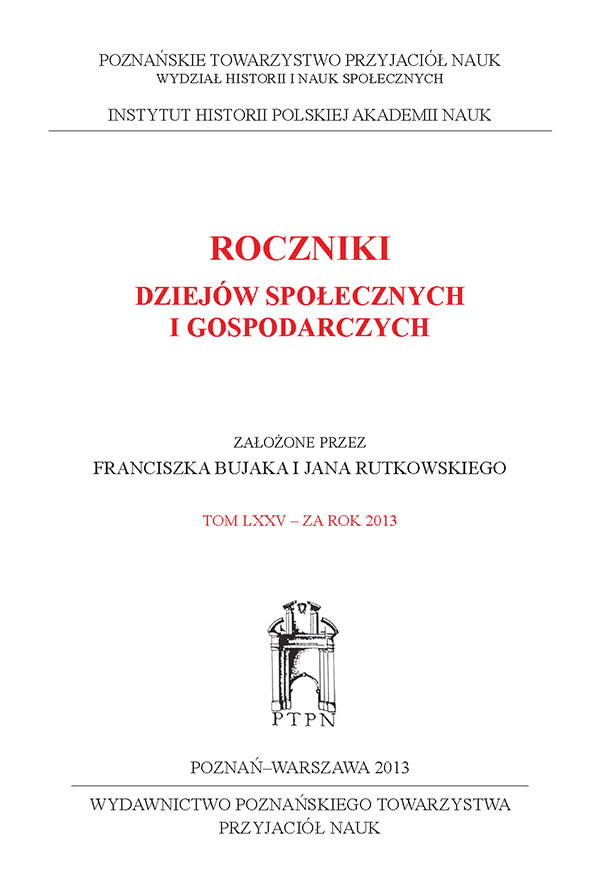Who needed tax records in the 16th century and why? On budget planning at the start of the early modern period in Poland
DOI:
https://doi.org/10.12775/RDSG.2013.02Keywords
early modern history, taxation system, taxes, history of the State, history of lawAbstract
Who needed tax records in the 16th century and why? On budget planning at the start of the early modern period in Poland (Summary)
The modern methods of calculating income and expenses using statistical data is sometimes attributed to the period of the Enlightenment. However, an analysis of the surviving sources (constitutions passed by the Sejm and registers of taxable income) suggests that the first attempts to create a balanced budget in the Kingdom of Poland can be dated between 1530–80. At that time action was taken to improve the functioning of the treasury, accompanied by the creation of new types of treasury documentation: tax returns and income tax registers. Both the form and content of the income tax registers indicate that they were used to calculate future years’ tax inflows and to seek the reasons for the periodical drops in revenue. Discontinuing the preparation of tax registers at the end of the 16th century was probably related to changes in the rules for preparing the state budget, which manifested itself in calculating lump-sum taxes or leasing out their collection. In place of planning the future budget, the treasury administration began to concentrate mainly on satisfying current state requirements and paying tax arrears.
Downloads
Published
How to Cite
Issue
Section
Stats
Number of views and downloads: 438
Number of citations: 0



